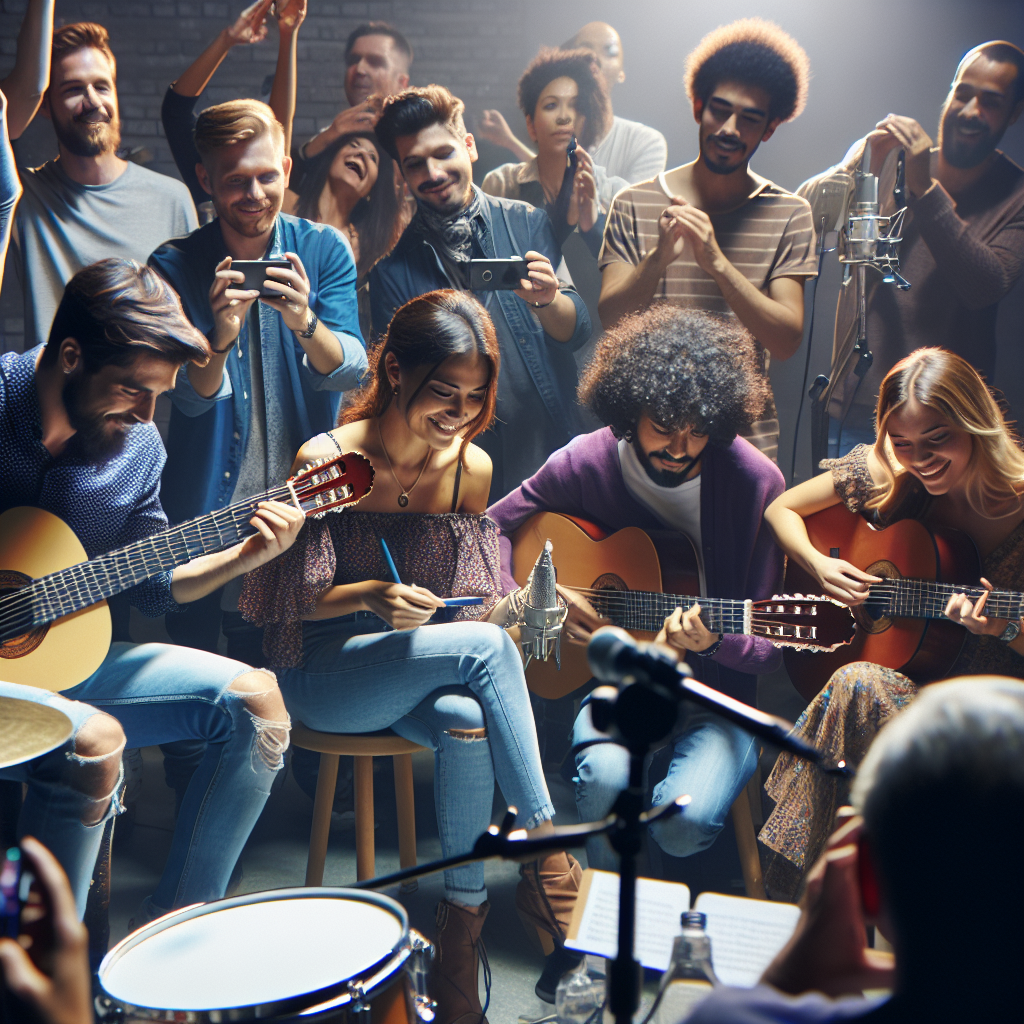Unpacking the Udio Experience: A Deep Dive into the Latest AI Music Sensation
In an era where artificial intelligence is revolutionizing every facet of life, the music industry is not left behind. The recent live session discussing the merits and demerits of Udio, a new AI-powered music generation tool, offers a glimpse into the burgeoning world of AI music. This analysis delves into the Udio user experience, comparing it with its competitors, and explores the cultural implications of these AI tools in the music creation landscape.
The User Experience: Intuitive or Intimidating?
The live session opens up with an informal and engaging atmosphere, allowing users to freely express their thoughts and experiences with Udio. One of the standout features of Udio, as highlighted by users, is its enjoyability factor. The platform appears to be designed with a focus on user engagement and ease of use, although some users pointed out that its control capabilities need some tweaking. Unlike its competitor Sunno AI, which seems to have an edge in language support, particularly Arabic, Udio is favored for its overall user experience despite some limitations.
The real-time interaction during the session provided several insights. Users shared personal anecdotes of how they utilized Udio to create unique sounds, demonstrating the platform's capability to cater to diverse musical tastes and needs. However, the consistent theme was the need for greater control over the music generation process, suggesting that while Udio is user-friendly, professional musicians might find it lacking in certain technical aspects.
The Comparative Edge: Udio vs. Sunno AI
Competition breeds innovation, and this is vividly evident in the realm of AI music generators. Udio and Sunno AI are often pitted against each other, with each boasting unique features that appeal to different segments of users. Sunno AI's support for Arabic is a significant plus for a niche but important user base. On the other hand, Udio’s simplistic approach and slightly better sound quality seem to attract those who prefer an intuitive interface over complex functionalities.
The debate on which platform offers better voice modulation was also a significant part of the discussion. While some users expressed satisfaction with Udio's outputs, others felt that the voice quality still lacks the naturalness of human singers. This aspect of AI music generators remains a work in progress and is crucial for wider acceptance among traditional music enthusiasts.
The Cultural Impact of AI in Music
As AI continues to permeate music creation, its impact on culture cannot be understated. Tools like Udio are democratizing music production, allowing individuals without formal music training to compose and produce tracks. This accessibility is revolutionary but also raises questions about the dilution of musical quality and authenticity.
The session reflected a community split between embracing technological advancements and guarding the sanctity of traditional music creation methods. This dichotomy represents a broader cultural challenge as we advance toward a more tech-driven world.
Technical Challenges and Future Prospects
Discussing the technical nuances, the live session illuminated some of the current limitations of AI music tools like Udio. High on this list is the issue of latency and the occasional unpredictability of AI compositions. These are areas where continuous improvements are expected as the technology matures.
The future of AI in music looks promising, with anticipated advancements in AI emotional intelligence that could lead to more emotionally resonant music, potentially bridging the gap between AI-generated music and human compositions. As these tools evolve, they are expected to become more sophisticated and sensitive to the subtle nuances of music production.
Conclusion: Harmonizing Technology and Creativity
The exploration of Udio in the live session paints a picture of a future where music creation is more accessible, yet also more contested. As AI music generators like Udio evolve, they must strive to balance technical excellence with ease of use, while addressing the nuanced demands of a diverse user base.
As we stand on the brink of this new era in music, the conversation around AI music tools is not just about technological capabilities but also about the philosophical implications for art and culture. The continued development of these platforms will determine whether AI can truly become a harmonious part of the musical landscape or if it will remain a tool of convenience overshadowed by questions of authenticity and artistic integrity.
For more insights into the influence of AI on various industries, including music, visiting official platforms of leading AI tools can provide valuable information and updates on recent developments.
Related News
- Unraveling the Symphony of AI-Generated Music: A Deep Dive into the Trends Shaping Our Musical Future
- Ushering In the New Era of AI Music Generation: A Deep Dive into UdiO AI
- Exploring the Potential of AI Music Generators: A Detailed Analysis
- An In-Depth Look at Ud.io AI Version 1.5: Redefining Music Creation
- The Symphony of Silicon: A Deep Dive into the Next Wave of AI-Generated Music
